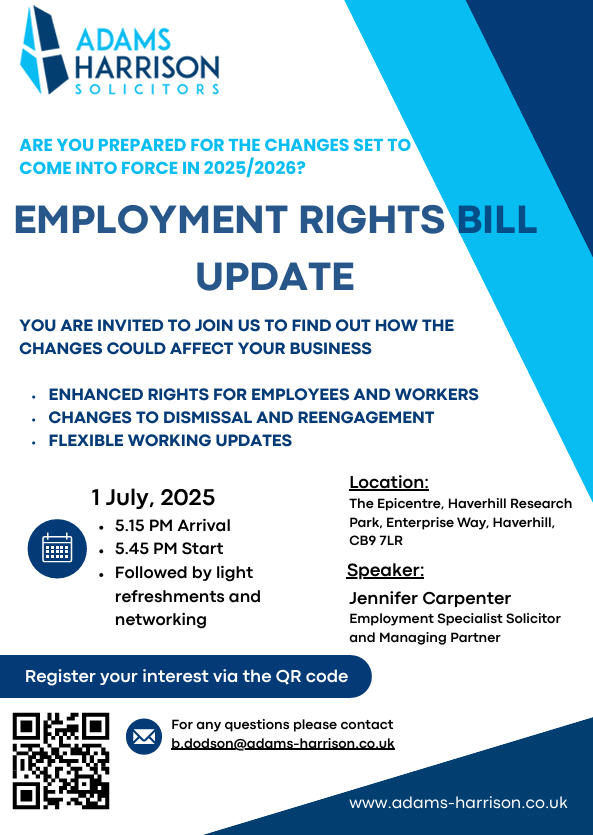No matter what precautions are in place, accidents at work can and do happen. Injuries caused by work accidents and employer negligence can range in severity from minor injuries to severe injuries. Importantly if you have suffered a personal injury at work and you believe your employer is to blame, you may be eligible to make an accident at work claim for compensation.
Adams Harrison Solicitors can help you and advise you about claiming compensation for an accident at work. You can contact us by phone, email or video call where we can provide a free assessment of your potential claim and if there are enough grounds to proceed we can discuss acting for you and starting your claim under a No Win No Fee basis.
In this article, we’ll explain what your rights are following an accident at work by answering some common questions we hear from our clients.
I have had an accident at work what should I do?
If you have an accident at work, you should report the accident to your employer as soon as possible, such as logging the event in the accident book.
If you are hurt, you should seek medical attention as soon as you become aware of your injuries.
You should also take photographic evidence of the accident such as photographs of any unsafe conditions that contributed to the accident – for example, if you tripped over loose cables, take a photo of the cables as evidence. It is also a good idea to take photo evidence of any injuries caused by the accident or obtain a statement from any witnesses that saw the accident or aftermath.
Can I lose my job for having an accident at work?
If you were not at fault for the accident, your employer should not dismiss you because of the accident. If your employment is terminated for this reason, you may be able to take legal action against your employer for unfair dismissal. This is where our employment law department can provide advice and representation. Even if your employer is alleging that the accident was entirely your fault you would need legal advice as to whether any dismissal or potential dismissal was fair. You may have other, employment related claims, in addition to a personal injury claim.
Can I still claim if the accident was partly my fault?
You may still be entitled to make a claim even if you were partly to blame however any compensation may be reduced to reflect the extent to which you were responsible for the accident. For example, if a claimant is found to be 50 per cent liable (legally responsible) for their own injuries, the compensation they receive will be reduced by 50 per cent. This deduction is known as Contributory Negligence. You can read about Contributory Negligence here.
Am I entitled to sick pay after an accident at work?
If you need to take time off because of injuries caused by an accident at work, check your employment contract for details about your sick pay entitlement. Usually your contract should outline whether you are entitled to Statutory Sick Pay (SSP), or a higher rate of contractual sick pay.
How long have I got to make a claim?
The law states that you have three years following an accident at work in which to make a claim for compensation. However, there are some limited exceptions to this rule and therefore please get in touch with us to allow us to advise you. We recommend that you contact us as soon as possible. The time period for an employment related claim is likely to be considerably shorter – in most cases just three months so do not delay obtaining our advice.
How much compensation can I claim?
The amount of compensation you are entitled to claim varies due to different factors such as the severity of your injuries, the time you have taken to recovery and how your injuries have impacted your life.
Compensation generally consists of two main categories:
General Damages – this covers the compensation for the pain, suffering and loss of amenity resulting from your injuries. This amount is based on the injury severity, the impact on your daily life and any long term issues. The Judicial College Guidelines sets out compensation ranges for different types of injuries.
Special Damages – These are awarded to cover specific financial losses that you have incurred as a result of your injury. This can include loss of earnings, rehabilitation costs and other out of pocket expenses. It is therefore important that you keep a record of these expenses including proof such as receipts to evidence the loss.
How much does it cost to make an accident at work claim?
Adams Harrison Solicitors can help you and advise you about claiming compensation for an accident at work. You can contact us by phone, email or video call where we can provide a free assessment of your potential claim and if there are enough grounds to proceed we can discuss acting for you and starting your claim under a No Win No Fee basis.
If you would like our assistance with an Accident of Work claim then please contact us via our website form, Telephone 01440 702485 or by email [email protected]
Anton Bilinski is a Chartered Legal Executive working within the Litigation Department having qualified in 2010.
Anton’s area of expertise is in Personal Injury Law having acted for a number of clients with their claims following Accidents at Work, in a Public Place and Road Traffic Accidents with a high success rate. Achieving above average payments for his clients. He is member of the Association of Personal Injury Lawyers (APIL).
Anton can also advise on matters across a broad range of civil litigation including advising Landlords in connection with possession claims and recovery of rental arrears as well as disputed debts for individuals and companies.
Anton joined the firm in 2001 and has built up a longstanding relationship with local clients and businesses throughout this time.
Outside of work Anton’s family keeps him busy!









